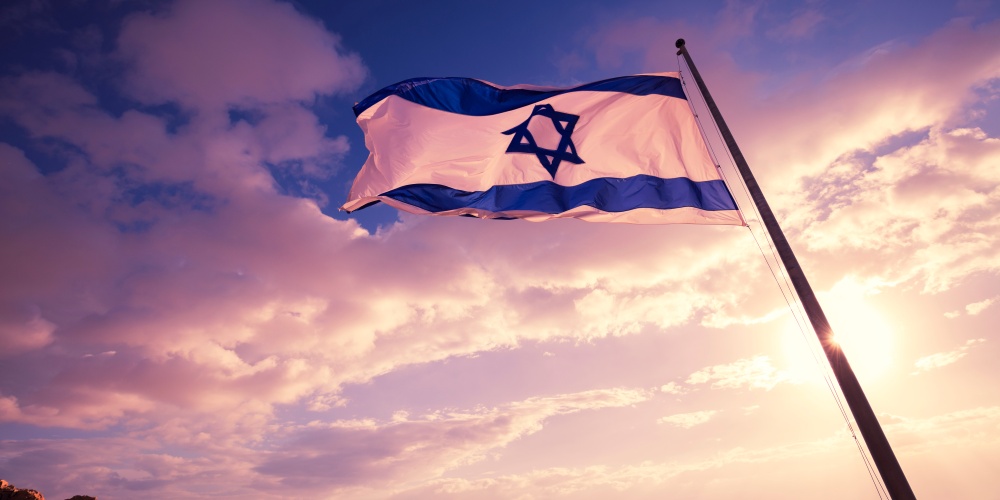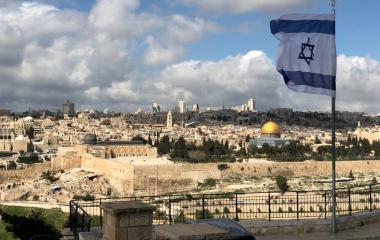
A few years ago while on a visit to Israel, my good friend Michael Levenstein z”l, in whose memory this devar Torah is dedicated, was giving my wife and me a lift back to our hotel. While we were stuck in a traffic jam in Jerusalem, Michael, noting my frustration, turned to me and said, “Oh, how the Ramban would have loved to be stuck in a traffic jam!”. The Ramban did not have to worry about traffic jams as when he arrived in Jerusalem in 1267, there was not even a minyan in the city. How fortunate are we that there are hundreds of thousands of Jews living in Jerusalem, clogging up the roads! This comment—which may help explain why he made aliyah and I am still in Toronto—says much about the importance of perspective in general, and the many blessings of the State of Israel in particular.
It is human nature to take that to which we are accustomed for granted. And while we are aware of the constant struggles with which our enemies confront us, we may not always pause and appreciate the tremendous blessings that are ours due to the founding of the State of Israel. Yom Ha’atzmaut is a time for such reflection.
While, tragically, many have sacrificed their lives so we could have a state, I shudder to think of how many lives would have been lost without a state. The only reason I can proudly walk the streets of Toronto wearing my kippa is because there is a Jewish state. The Vilna Gaon is reported to have said that his learning in Vilna helps to prevent intermarriage in Paris; what, then, might one say about the creation of the State of Israel?
The entire ba’al teshuva movement was able to blossom only because of the founding of the state in general and Jewish sovereignty over Jerusalem in particular. It would be an exaggeration to claim that there were ten ba’alei teshuva from the time of the emancipation until 1948. Of equal, or perhaps even greater, importance, Israel has helped maintain the Jewish identity of hundreds of thousands of the “non-observant”. Imagine what the assimilation rate would be without a Jewish state!
Too often, we focus on the imperfections within Israel. Not only is this generally not a constructive approach (at least for those living in exile), it often mistakenly downplays the Jewishness that permeates the “secular” state. This year, Yom Ha’atzmaut is celebrated on the third of Iyar. This is due to concern about the desecration of Shabbat were we to celebrate on the 5th of Iyar[1]. How beautiful!
How different our leaders are from so many of the kings who ruled during the two previous Commonwealths. We had kings who preached and practiced idolatry, and who forbade pilgrimages to Jerusalem. A most common Biblical refrain is that they “did evil in the eyes of G-d.” Idolatry, killing and sexual wrongdoing were common, and such instances were not unknown even amongst our model kings, including King David, the forerunner of the Messianic dynasty. The list of misdeeds and total ignorance is spelled out in our Bible. During the Second Temple period many—perhaps most—of the “religious” leaders were men of little distinction, people who used power and connections to attain their leadership positions. Religious corruption was rampant, and internal strife was part and parcel of life.
The “secular” leaders who founded the state are paragons of religiosity by comparison. Whatever role the religiously observant may have played, it is beyond obvious that without the secular settlers, there would be no State of Israel today. The government supports Torah education to the tune of hundreds of millions of dollars a year. Day schools, high schools and yeshivot of all persuasions are funded by the government, enabling millions to learn Torah. The United States, which Rav Moshe Feinstein most beautifully referred to as the “Malchut shel chesed, kingdom of kindness,” is constitutionally barred from giving one penny towards Torah education. The Province of Ontario, facing no such constitutional barrier, funds public and Catholic schools but refuses to fund those of other religions. Yet we pray, as we should, for the welfare of our wonderful countries.
It was David Ben-Gurion who insisted that the army be kosher, that Shabbat be the day of rest for the entire country, and that personal status questions be decided in accordance with halacha. Even the most secular of Israelis is “full of mitzvot like a pomegranate.” To quote Rav Aharon Lichtenstein, zt”l ,“Can we blandly overlook the infant country’s commitment to kelita (absorption of Jews worldwide), arguably the most monumental initiative of post-Biblical chesed?”
I believe I am not overstating the point to say that over the past 2,500 years, despite the challenges we face, Jews have never had it as good as we do today. The material blessings, the religious freedoms, the freedom to live almost anywhere are unprecedented in Jewish history. Yes, there is still much room for improvement, and there is still a need for a complete redemption. Let us do our part to help bring it about.
[1] It is the rare year, occurring only when Pesach falls on a Thursday, that Yom Ha'atzmaut is celebrated on the 5th of Iyar. In all other years Yom Ha'atzmaut (or Yom Hazikaron) is on Friday, Shabbat or Sunday, causing the day to be moved back or forward in order to avoid chilul shabbat.



